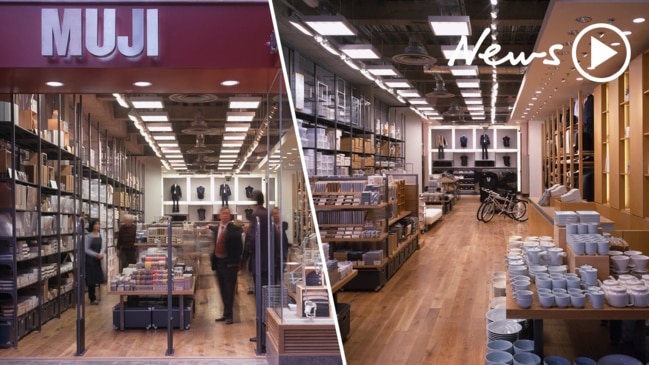Vicinity pulls pin on asset sale as tough times bite
Vicinity Centres, which owns or partly owns 62 shopping centres, including Chadstone, has abandoned its planned asset-selling spree due to a retail slowdown.

Business
Don't miss out on the headlines from Business. Followed categories will be added to My News.
The company behind some of Australia’s biggest shopping centres has called an early end to its asset selling spree, saying demand has waned in a “challenging” retail environment.
Vicinity Centres, which owns or partly owns 62 shopping centres — including the nation’s biggest, Chadstone — says the slowdown in demand has hit retail property prices.
Adding to the pall over the retail sector, the group issued the warning on Wednesday as it revealed net profit tumbled more than 70 per cent in the year to June, to $346.1 million.
A year earlier, it had clocked in at $1.22 billion.
The slump in part reflected the group’s move to sell out of 12 “non-core” centres, and a fall of more than $200 million in the value of its remaining centres.
Vicinity’s result came as ANZ analysts said growth in retail spending had slowed to its weakest level since 1991 — the last time Australia was mired in recession.
In a research report for investors, they said the “retail malaise” was hitting the property market, and growth in shopping centre rents was slowing “while vacancies across centre types in most major cities are rising”.
Vicinity ranks among the biggest shopping centre landlords in Australia, with half stakes in landmarks including Chadstone, Emporium Melbourne and Sydney’s Queen Victoria Building. It also has outright ownership of five of the six DFO “factory outlet” centres and a half stake in the remaining DFO, in Perth.
Chief executive Grant Kelley said the “softening in investor demand for retail property funds globally, compounded by a crowded divestment market, is impacting retail property pricing in Australia”.

As a result, Vicinity would not carry out any more “material” asset sales, he said.
A year ago, the group said it expected to sell up to $1 billion of non-core assets — broadly neighbourhood and smaller suburban centres — in the 2019 financial year as it ratcheted up its focus on premium centres.
It also announced plans to launch a property fund in a joint venture with Singaporean wealth manager Keppel Capital. That proposal has now been shelved.
Vicinity planned to tip some of its shopping centres, to the value of about $1 billion, into the fund. In all, the group expected to divest about $2 billion of assets over the past year.
It has instead sold about $670 million worth.
Mr Kelley said that given the current environment, “there is more value keeping these assets on (our) balance sheet”.
“The retail environment is expected to remain challenging in (this financial year), although economic stimulus including lower interest rates and income tax cuts may benefit retail spending,” he said.
Vicinity had sold $3.1 billion worth of assets over the past four years, he said.
The group’s funds from operations — a closely-watched measure of cash flow in the industry — fell only modestly the past year, down 2.7 per cent to $689.3 million.
While the values of many of the group’s centres have fallen, others have climbed. Its half stake in Chadstone alone grew in value by $200 million over the past year, to $3.25 billion.
Moody’s Investors Service analyst Saranga Ranasinghe said Chadstone and Vicinity’s premium CBD and DFO centres “continued to show robust performance”, but other “core” properties performed weakly.
The results highlighted “the challenging environment for retail landlords”, she said.
A suite of retailers — including Roger David, Toys ‘R’ Us, Herringbone, Rhodes & Beckett and Esprit — have collapsed in Australia in recent years, although others, such as JB Hi-Fi, have performed strongly.


